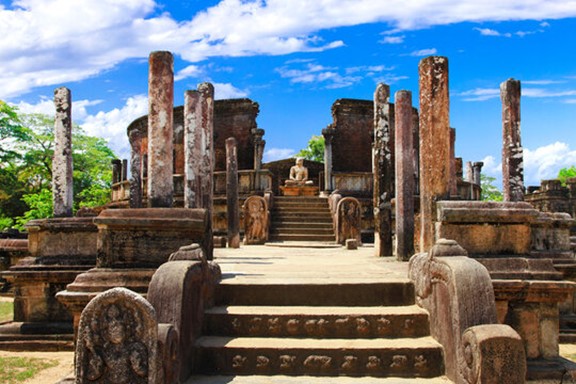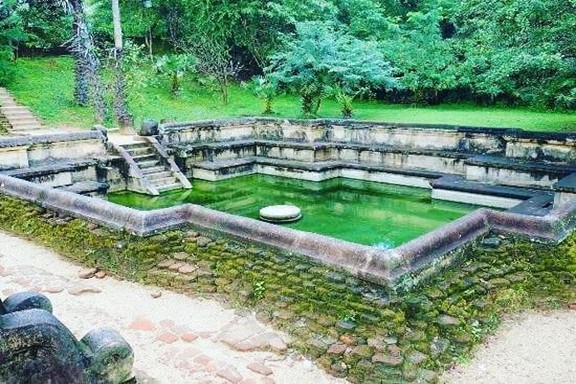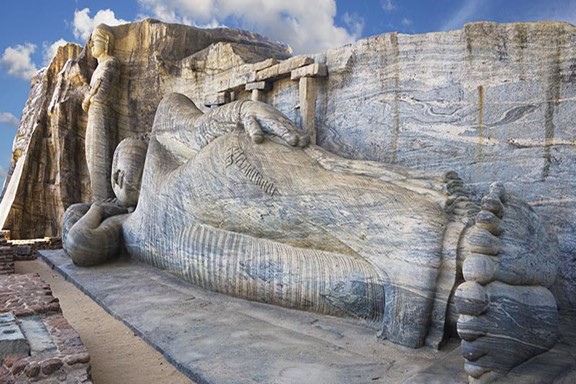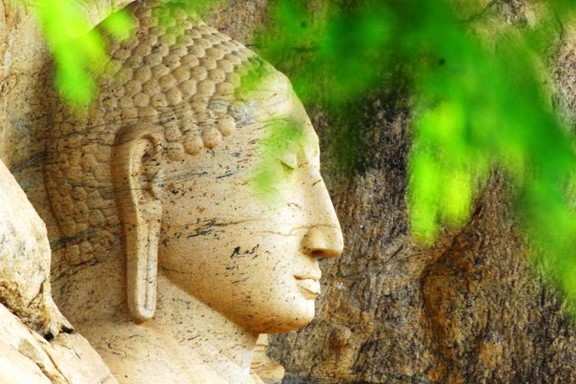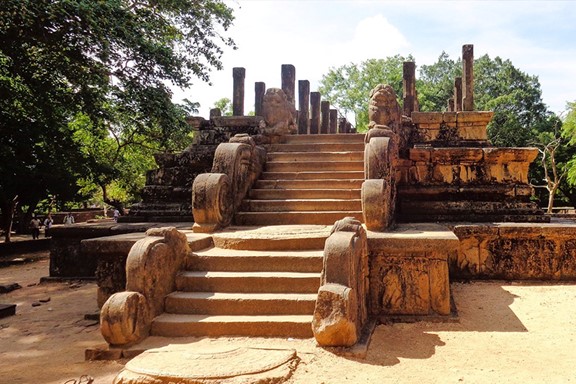Explore the Ancient City: Discover Polonnaruwa in Sri Lanka
Welcome to Polonnaruwa, an ancient city that serves as a testament to Sri Lanka's rich history and architectural brilliance. As a UNESCO World Heritage Site, Polonnaruwa offers a fascinating journey through well-preserved ruins, majestic temples, and intricate sculptures that echo the grandeur of a bygone era.
Marvel at the Royal Palace Complex
The Royal Palace Complex is a highlight of any visit to Polonnaruwa. Once a grand residence of kings, the complex includes the impressive King’s Council Chamber and the Audience Hall, with intricately carved stone pillars and majestic lion statues. The Royal Baths, known as the Kumara Pokuna, are also part of the complex and showcase the sophisticated hydraulic engineering of the ancient kingdom.
Explore Sacred Buddhist Sites
Polonnaruwa is home to several important Buddhist sites that attract pilgrims and tourists alike. The Gal Vihara, a rock temple featuring four magnificent Buddha statues carved out of granite, is particularly awe-inspiring. The standing, seated, and reclining statues represent the pinnacle of Sinhalese rock carving and offer a serene and spiritual atmosphere.
Visit the Ancient Temples
The city boasts numerous ancient temples that reflect its rich spiritual heritage. The Rankoth Vehera and Kiri Vehera stupas are monumental structures that dominate the landscape, showcasing the architectural prowess of the period. The Lankatilaka Temple, with its towering brick walls and large headless Buddha statue, is another must-visit site, offering a glimpse into the religious devotion and artistic excellence of ancient Sri Lanka.
Discover the Sacred Quadrangle
The Sacred Quadrangle is a compact but richly concentrated area of ancient ruins that encapsulates the grandeur of Polonnaruwa. This area includes the Vatadage, a circular relic house with beautifully carved stone pillars and intricate moonstones. Nearby, the Thuparama Image House houses an impressive statue of Buddha, while the Atadage and Hatadage structures highlight the architectural diversity of the site.
Enjoy Scenic Reservoirs and Wildlife
Polonnaruwa is not just about ancient ruins; it also offers beautiful natural landscapes. The Parakrama Samudra, an enormous man-made reservoir, is perfect for a relaxing walk or boat ride, providing stunning views and opportunities for bird watching. The surrounding area is also home to a variety of wildlife, including monkeys, deer, and elephants, making it an ideal destination for nature lovers.
Practical Information:
Location and Accessibility: Polonnaruwa is located in the North Central Province of Sri Lanka, approximately 216 kilometers northeast of Colombo. The city is accessible by road and rail, with regular bus and train services from major cities like Colombo and Kandy. Guided tours are also available, offering convenient transportation and expert insights.
Site Hours and Entry: The ancient city is open daily from 7:00 AM to 6:00 PM. Visitors are advised to dress modestly, covering their shoulders and knees, as a sign of respect when visiting religious sites. Entry tickets can be purchased at the main entrance or through authorized tour operators.
What to Wear and Bring: Wear comfortable, modest clothing suitable for exploring historical sites. Lightweight, breathable fabrics and comfortable walking shoes are recommended. Don’t forget to bring sunscreen, a hat, and plenty of water to stay hydrated during your visit.
Best Time to Visit:
The best time to visit Polonnaruwa is during the dry season, from May to September, when the weather is pleasant and ideal for exploring outdoor sites. Early mornings or late afternoons provide cooler temperatures and fewer crowds, enhancing your experience.

